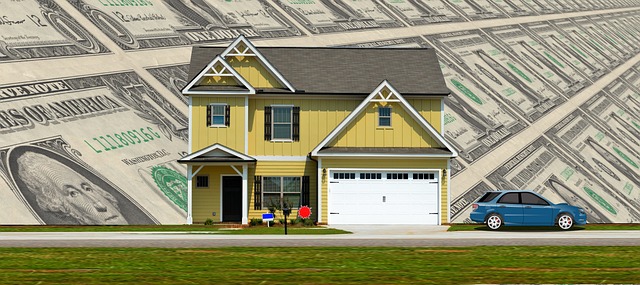Contractor financing is a popular and accessible way for homeowners to fund major renovation projects, offering competitive interest rates and tailored repayment plans. To secure the best terms, homeowners should understand loan fees based on project scope, credit score, and lender's fees. Comparing multiple offers from different lenders, breaking down and analyzing costs including interest rates, origination fees, and closing costs, is crucial for informed decision-making regarding contractor financing for home improvements.
Planning a home improvement project? Understanding contractor financing can help you secure the funds needed without breaking the bank. This article guides you through the process of estimating contactor loan fees for your next renovation. From grasping the basics of contractor financing to delving into key factors and calculating costs, discover how to make informed decisions and navigate this crucial aspect of home improvements with confidence.
- Understanding Contractor Financing for Home Improvements
- Factors to Consider When Estimating Loan Fees
- Calculating and Comparing Loan Costs
Understanding Contractor Financing for Home Improvements

When considering home improvement projects, many homeowners turn to contractor financing options, which can make significant renovations more accessible. Contractor financing is a service that allows property owners to borrow money for various home improvement tasks, such as remodeling kitchens, upgrading bathrooms, or even replacing roofs. This alternative funding method has gained popularity due to its convenience and flexibility.
Understanding the dynamics of contractor financing for home improvements is key when navigating this financial option. Lenders offer loans with specific terms and conditions tailored to contractors and their clients. These loans often come with competitive interest rates and a variety of repayment plans, making them an attractive solution for those looking to enhance their living spaces. By exploring these financing options, homeowners can transform their dream home improvements into a reality without breaking the bank.
Factors to Consider When Estimating Loan Fees

When estimating loan fees for contractor financing home improvements, several key factors come into play. First, consider the type and scope of the project. Different types of home improvements, from small-scale renovations to major structural changes, carry varying levels of complexity and costs. This directly impacts the financing options available and the associated fees.
Additionally, your credit score plays a significant role in determining loan terms and interest rates. A strong credit history generally translates to better borrowing conditions, while less favorable scores may result in higher fees. It’s crucial to assess your financial health and make adjustments, if necessary, before applying for contractor financing. Other considerations include the lender’s fees, such as application charges, appraisal costs, and closing expenses, which can vary between lenders. Shopping around for multiple offers allows you to compare these fees and secure the most cost-effective contractor financing option for your home improvements.
Calculating and Comparing Loan Costs

When considering contractor financing for home improvements, calculating and comparing loan costs is a crucial step in making an informed decision. Start by breaking down the various fees associated with the loan. This includes interest rates, origination fees, closing costs, and any other charges that might be applicable. Different lenders may structure their fees differently, so it’s essential to ask for detailed breakdowns from several options.
Comparing these costs across multiple contractors or financing sources allows you to assess the overall value of each offer. Keep in mind that lower interest rates aren’t always the best deal; consider also factors like loan terms, repayment options, and any additional benefits or services provided by the lender. This comprehensive approach ensures you secure the most cost-effective contractor financing for your home improvement project.
When considering contractor financing for your next home improvement project, understanding the various loan fees involved is crucial. By evaluating factors like interest rates, origination charges, and repayment terms, you can accurately estimate and compare costs. Armed with this knowledge, you’ll be better equipped to make informed decisions, ensuring your home upgrade is both affordable and beneficial in the long run.
